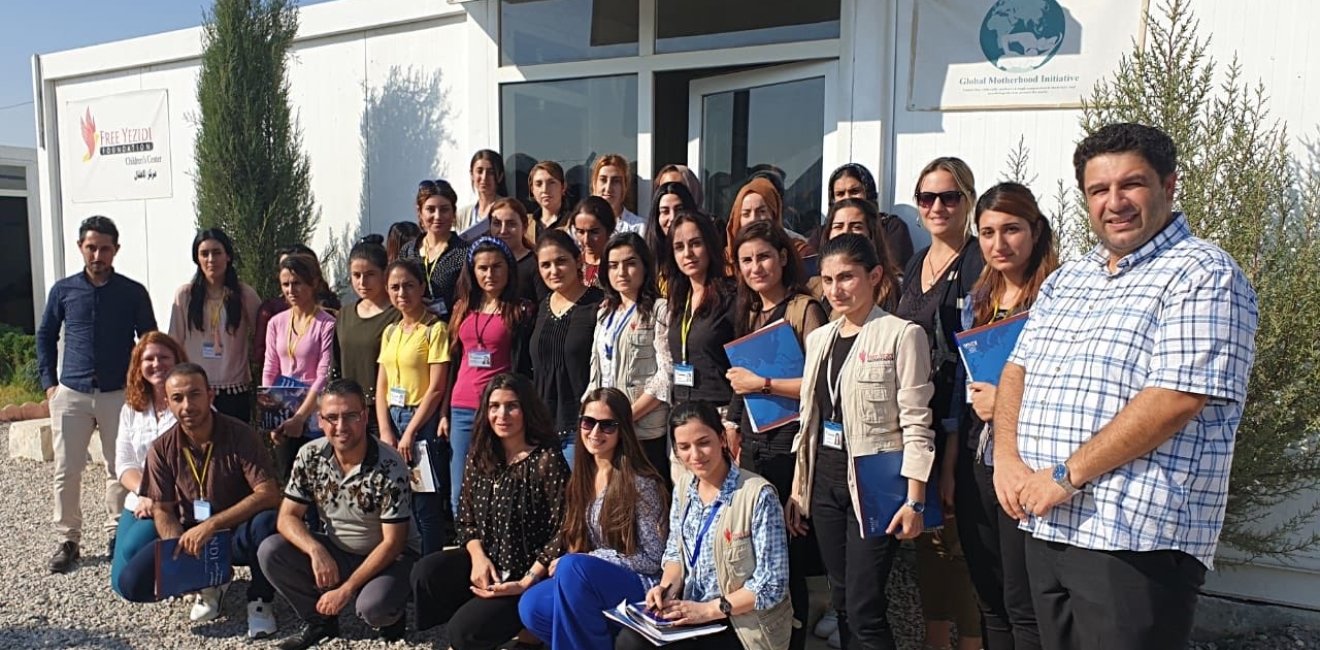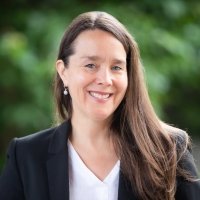Since gaining formal autonomy in 2005, the Kurdistan Region of Iraq has laid the groundwork for an independent civil society that emerged as one of the most resilient in the region – even withstanding the threat of ISIS. Yet an estimated 3,000 Yezidis are still missing and others unable to return to their homes. Some ISIS members are still at large in Iraq and Syria. Other ISIS criminals have been allowed to return to their home countries as if nothing happened.
On Monday March 16, Omaima Abdi was charged in Germany with crimes against humanity, membership in a terrorist organization, and the enslavement of a 13-year-old Yezidi girl. Investigative journalists Jenan Moussa and Harold Doornbos broke the story and provided crucial evidence that led to her arrest. When Ms. Abdi reported herself to the German embassy in Turkey in August 2016, she feigned innocence and claimed to have been tricked by her husband who was an ISIS amir, or commander. She and her children were allowed to return to Germany and escape prosecution – until Moussa and Doornbos found her cell phone in Syria and then tracked her down in Germany. Even as Ms. Abdi was being arrested from her home in Hamburg in September 2019, she showed her allegiance to ISIS by flashing the one finger salute, a common way of indicating support for the Islamic State.
On March 17, the State Department announced its intent to designate Amir Muhammad Sa’id Abdal-Rahman al-Mawla as a Specially Designated Global Terrorist (SDGT). Since the killing of former ISIS leader Abu Bakr al-Baghdadi, Al-Mawla has become the new leader of the Islamic State. According to the State Department, “Al-Mawla helped drive and attempt to justify the abduction, slaughter, and trafficking of Yazidi religious minorities in northwest Iraq.” Samantha Elhassani is an American woman from Indiana who has pled guilty to concealing her financial support to the Islamic State. The Free Yezidi Foundation, a non-profit civil society association that works in the Duhok province of Kurdistan, issued a report and memorandum about the case of Ms. Elhassani as part of their Justice Project. These and other cases illustrate that the fight for justice and accountability is far from over. The exemplary work of Moussa, Doornbos, and the Free Yezidi Foundation highlights the important role that journalists and NGOs can play.
During the time ISIS still controlled territory in Iraq, the Kurdistan Region became a safe haven where displaced people (IDPs) took shelter. The semi-autonomous region offered more than just a modicum of safety and security from extremists. Instead of using the existential threat posed by the Islamic State to clamp down on civil and political liberties – as happened elsewhere – civil society organizations persisted and flourished. For the most part, KRG authorities treated non-governmental organizations (NGOs, charities, and aid organizations) as a partner they could work with, not as an adversary. At the same time that Egypt was passing a draconian NGO law that forced many of the country’s long-standing NGOs and human rights organizations to shut down, authorities in the Kurdistan Region were allowing new NGOs to establish themselves.
The development of civil society extended beyond the growth of humanitarian aid organizations. Newly minted universities and research centers have also sprung up since the region’s autonomy was recognized in 2005. The Kurdistan Region has hosted important international conferences such as the Suli Forum in Suleimani and the MERI Forum in Erbil.
The development of civil society extended beyond the growth of humanitarian aid organizations. Newly minted universities and research centers have also sprung up since the region’s autonomy was recognized in 2005.
I still remember vividly how in March 2017 – while Mosul was still partly under the control of the Islamic State – I attended the Suli Forum held at the American University in Iraq Suleimani (AUIS). For a university just 10 years old, it was an impressive gathering of analysts and officials from around the world. But more than that, I was struck by the candor with which sensitive issues were discussed.
One panel featured General Talib Shaghati, the top commander of Iraq’s Counter-Terrorism Service, Lieutenant General Jabbar Yawar, Secretary-General of the Ministry of Peshmerga, and Haider Shisho, the founder and commander of the Yezidkhan Protection Forces. The uniformed officers sat lined up next to each other on the stage, facing an audience of several hundred people. I remember thinking I’d never seen anything like this before at the American University in Cairo, now celebrating its 100th anniversary. It began as a friendly debate but became tense.
“If the issue of Sinjar and the other disputed territories is not resolved, then another genocide may occur,” Mr. Shisho declared. His stark warning encapsulates both the tragedy and the hope that co-exist in the Kurdistan region of Iraq. It was tragic because Mr. Shisho was of course referring to the attempt to annihilate the Yezidis in August 2014, when ISIS attacked their ancestral homeland. But the mere fact that he was able to utter these words at such a venue, sitting next to top military commanders, also attests to the level of freedom of speech in the KRG. By comparison, the topic of the 1915 Armenian genocide remained a taboo subject in Turkey into the 21st century. Scholars who attended a conference at Bilgi University in Istanbul in 2005 had eggs and tomatoes thrown at them by flag-waving Turkish nationalists. Even conferences about the Armenian genocide held outside Turkey are routinely condemned by Turkish officials.
In July 2017, a few months after the Suli Forum, ISIS lost control of Mosul, its self-declared capital and second-largest city in Iraq. The defeat of the territorial caliphate happened due to military cooperation between the Iraqi armed forces, Kurdish Peshmerga, and the US-led coalition to counter ISIS. But the military campaign succeeded in no small measure due to political and social factors. NGOs, journalists, academic analysts and other civil society groups in the Kurdistan Region contributed essential expertise and provided life-saving services that were crucial in defeating the Islamic State.
NGOs, journalists, academic analysts and other civil society groups in the Kurdistan Region contributed essential expertise and provided life-saving services that were crucial in defeating the Islamic State.
Even when Mosul was still under ISIS control, journalists were allowed access to the frontlines to report on what was happening. In Egypt, an ISIS affiliate has established a presence in a small area of North Sinai. Although the group never seems to have controlled territory, the entire northern half of the Sinai Peninsula has been virtually sealed off from journalists and other observers for years. This severely limits our knowledge of what is happening on the ground.
The Kurdistan Region of Iraq allows NGOs to operate and receive foreign funding; unlike other states that treat local civil society as foreign agents. There is a recognition that NGOs are necessary partners in addressing the humanitarian crisis. Such NGOs continue to provide indispensable services that complement and, in some cases substitute, for government efforts to help rebuild war-ravaged areas. By contrast, in Egypt the regime continues to wage a harsh campaign against NGOs and civil society associations – this is harmful both to the fabric of society and because it distracts from the real threat of extremism. NGOs have been largely prevented from operating in North Sinai, a hub for violent extremism that remains a closed military zone under the complete control of the Egyptian Armed Forces.
However, Iraq and the KRG still face daunting challenges. Although civil society in Kurdistan was resilient enough to withstand the threat of ISIS, the future is uncertain. Journalists were allowed to report on the war against the Islamic State, but those who dared to write about internal issues of corruption or abuse of power have faced harassment, red lines, and worse. Between 2008 and 2016, four journalists were killed in the Kurdistan Region.
By definition, freedom of the press only exists if it extends to all issues. Officials have recognized that reporters provided valuable feedback on the progress, or lack thereof, of the campaign against ISIS. This information helped to both adjust strategy and tactics and held commanders responsible for their errors. The same logic applies in the post-ISIS era. Just as NGOs and journalists contributed expertise that led to the defeat of the Islamic State, they could also help locate missing Yezidis and those who joined ISIS and perpetrated horrific crimes. In order for this to happen, journalists need to be allowed to do their jobs, and not be detained, harassed, or have their equipment seized. Kamal Chomani is a free-lance journalist who left Kurdistan in March 2018 following death threats and an attempt to arrest him.
Kurdish authorities say they are using every available resource to find missing Yezidis. Still, some feel it is not enough. Nobel-prize winner Nadia Murad met President Trump in July 2019 and pleaded for help. She and many other Yezidis are still unable to return to their homes in Sinjar. The Trump administration’s apparent lack of interest and understanding of the genocide is part of a much larger problem. Some countries have allowed their citizens who joined ISIS in Iraq or Syria to simply return home, no questions asked.
As the governments in Egypt and Turkey have grown more authoritarian, Presidents Sisi and Erdogan have both placed restrictions on their respective civil societies including journalists and NGOs. There are reasons to be hopeful that the Kurdistan Region will not follow the same trajectory. In the short time since gaining autonomy in 2005, Iraqi Kurds have laid the groundwork for the growth of an independent civil society. If the battle against the Islamic State has taught us anything, it is that defeating extremists and managing humanitarian crises requires a robust and independent civil society – not shutting it down. It will be necessary to achieve justice for the victims of ISIS crimes as well.
If the battle against the Islamic State has taught us anything, it is that defeating extremists and managing humanitarian crises requires a robust and independent civil society – not shutting it down.
The views expressed in this article are those of the author and do not reflect an official position of the Wilson Center.
This article was updated at 10:36 AM on 20 March 2020






